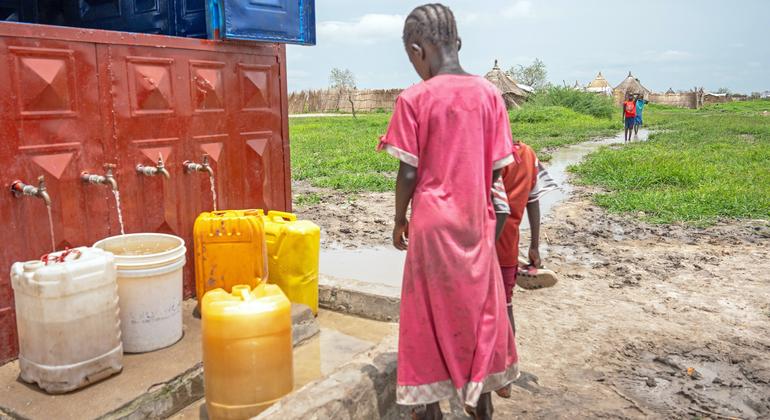Sudan: Refugee numbers rise as war continues to drive displacement


South Sudan currently ranks as the second largest recipient of Sudanese refugees, with more than 810,000 new arrivals from April 2023, include return South Sudanese refugees sheltering in Sudan and refugees and asylum seekers from other countries.
UNHCR warned that the situation is likely to get worse, exacerbating already serious humanitarian challenges in the country.
“The conflict in Sudan is affecting South Sudan more severely than any other country in the region and adds to the enormous challenges the country is facing,” said Marie-Helene Verney, UNHCR Representative in South Sudan.
“UNHCR and other humanitarian organizations have been on the frontline of the humanitarian response and are now calling on others to join the effort to help South Sudan integrate the hundreds of thousands of people who have arrived.”
Demand increases in a stressful economic context
More than half of South Sudan’s area Refugees are currently being welcomed in the Maban region, along with 135,000 others in the Ruweng Administrative Region. Increasing numbers of refugees are settling in urban areas, creating both opportunities and challenges for their integration into local economies and communities.
The conflict in Sudan has also severely disrupted oil supply and export routes in South Sudan, causing inflation and straining an already fragile economy. Prices of essential items, especially food, have risen, further limiting the resources of host communities and complicating the integration efforts of newcomers.
In response, UNHCR, together with national authorities and partners, continues to provide vital support to refugees and their host communities.
Efforts include meeting immediate needs such as water, shelter and medical care, as well as advocating for long-term solutions such as access to identification, livelihood opportunities and integration into the system national education and health.
However, ending the fighting in Sudan remains crucial to long-term success.
“However, it is clear that the only solution is to end the conflict in Sudan. South Sudan is reeling from shock and cannot continue to suffer so much,” Ms. Verney said.
Call for global support
UNHCR emphasizes the need for additional funding to support and protect vulnerable refugees.
“While funding for South Sudan remains generous, resources to fully meet the needs of the people remain very low,” the organization said.
With less than three months until 2024, its operations in South Sudan are only 47% funded, the agency said, calling for increased support from donors to meet the growing needs of both refugees and host communities.
Deadly clashes in Central Equatoria state
In a separate development, the United Nations Mission in South Sudan (SKIP) expressed concern over a series of violent clashes between armed parties in the greater Juba region of Central Equatoria state, which left at least 24 people dead, including 19 civilians.
The incidents are said to involve attacks and counter-attacks between former members of the National Salvation Front (NAS) and occurred in the Wonduruba and Ganji areas.
Nicholas Haysom, Special Representative of the Secretary-General of the country and head of UNMISS, said: “I am deeply concerned by these atrocities and urgently call on the Government of South Sudan to launch an immediate investigation. to quickly bring the perpetrators to justice.”
He emphasized that the protection of civilians must always be given top priority and respected.
“There is no justification for the unlawful killing of civilians. International human rights law sets clear rules and all parties must comply with them,” he added.
In response to the violence, UNMISS has increased patrols across Central Equatoria and actively cooperates with provincial and local authorities and community leaders to prevent further escalation and ensure security. protect civilians.




